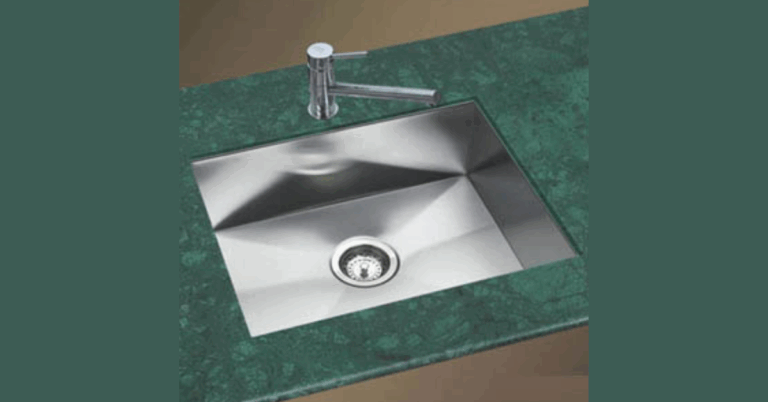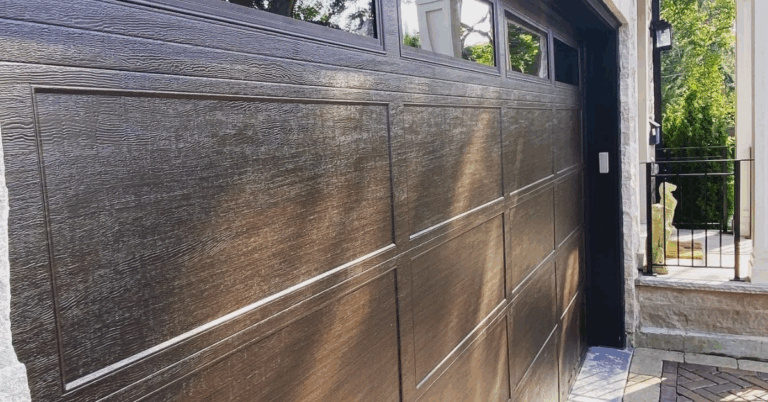Mobile Notary in Whiting, Indiana: What It Means and Why It Matters
Mobile Notary Whiting Indiana IN busy world, convenience and flexibility often matter just as much as accuracy and legal compliance — especially when dealing with critical documents. A mobile notary is a notary public who travels to your location (home, office, hospital, courthouse, etc.) to witness and notarize documents. Rather than you having to go to a notary’s office, the notary comes to you.
In Whiting, Indiana, mobile notary services are increasingly used by individuals, legal professionals, real estate agents, loan officers, and others who need to execute contracts, affidavits, powers of attorney, wills, deeds, or other legally binding documents. A mobile notary in Whiting serves as a flexible, on-demand solution for notarization, accommodating your schedule and location.
While I cannot embed a direct link, the information is drawn from sources about mobile notary operations in Indiana and providers like Rai’s Mobile Notary.
Why Use a Mobile Notary in Whiting, Indiana
There are several reasons someone in Whiting might prefer a mobile notary over a stationary notary office:
Convenience & Time Saving
Instead of traveling to a notary’s office during business hours, a mobile notary can come to your location — whether it’s your home, workplace, hospital, or even a parking lot. This is especially helpful for people with mobility challenges, busy professionals, or those with constrained schedules.Flexibility & After-Hours Availability
Some mobile notary services operate 24/7, offering evening or weekend appointments, which typical offices may not provide. This flexibility allows urgent or out-of-hour services (e.g., last-minute closings, emergency documents) to be handled more readily.Legal & Real Estate Transactions
Real estate closings, mortgage signings, and loan document signings often require notaries. A mobile notary can meet parties at a convenient location (like a settlement office or property) to complete signings.Health & Accessibility
If someone is homebound, hospitalized, or otherwise unable to travel easily, mobile notaries bring the service to them, reducing stress and ensuring essential documents can still be notarized.Professional Needs
Lawyers, title companies, financial institutions, insurance agencies, and other enterprises often require notarized documents for contracts, affidavits, powers of attorney, and more. Collaborating with a reliable mobile notary can streamline workflows, especially when multiple signers or remote sites are involved.
Typical Services Offered by Mobile Notaries in Whiting
Mobile notaries in Whiting generally offer a broad range of notarial services. Some of the common ones include:
Acknowledgments (signer acknowledges signature)
Jurats (sworn statements, where the signer swears or affirms)
Oaths and affirmations
Copy certifications (certifying a copy of a document)
Affidavits
Powers of Attorney
Wills, Trust documents, Health care directives
Loan documents, mortgage papers, closing documents
Deeds, title transfers
Document witnessing in general
Depending on state regulations and the notary’s commission, certain notarial acts may or may not be allowed. In Indiana, for example, mobile notaries are commissioned under Indiana’s notary law (so they must abide by Indiana statutes regarding permissible acts, required identification, fees, and records).
Some mobile notaries also offer notary signing agent services — specialized for mortgage and loan closings, in which the notary ensures all parties sign in the right places, coordinates with title companies, and handles the return of documents to the lenders.
Also, more modern mobile notary providers may offer remote online notarization (RON) — allowing signers to connect virtually via video conference. However, whether RON is legal in Indiana depends on state law and local adoption.
Legal Framework & Fee Limitations in Indiana
If you engage a mobile notary in Whiting (or anywhere in Indiana), there are legal constraints and guidelines to understand:
Commission and Bond: In Indiana, to become a notary, one must be commissioned, take training, obtain a surety bond, and comply with state rules. Notaries are bound by Indiana law when performing notarial acts.
Fee Cap: Indiana law typically limits the maximum fee a notary public may charge for most notarial acts (often a small fixed amount per signature, such as around $10). However, additional fees may be allowed for travel, convenience, or after-hours services (subject to reasonableness and disclosure). It is wise to ask and confirm the overall cost in advance.
Identification Requirements: The signer usually must present acceptable identification (driver’s license, state ID, passport, etc.) so the notary can verify identity. If the signer is not personally known, the notary may require credible witnesses or more stringent ID proof.
Record Keeping / Notary Journal: Many notaries maintain a journal or record of each notarization — including date, signer name, type of instrument, identification used, and signature. This practice can help in disputes or challenges later.
Prohibited Acts: Notaries cannot give legal advice unless they are also qualified attorneys under state law. They should not notarize for parties with whom they have a direct interest, or notarize documents when identity or willingness is in doubt. They must remain impartial and cautious of fraud or coercion.
Choosing a Reliable Mobile Notary in Whiting
When selecting a mobile notary in Whiting, here are key factors and tips to consider:
1. Commission and Credentials
Verify that the notary is commissioned in Indiana, that the commission is active, and ask for proof if necessary. A reputable notary should be able to show their notary commission certificate, bond, and possibly errors & omissions insurance.
2. Experience & Specialization
For real estate or loan closings, you may prefer a notary who is also a signing agent with prior experience in closings. For wills, trusts, or estate documents, ask if they have handled such documents before.
3. Transparent Fees
Ask for a breakdown of fees: standard notarial fee, travel fee, after-hours surcharge. Make sure there are no hidden costs. Good mobile notaries will provide a clear estimate ahead of time.
4. Availability & Scheduling
Check if they offer same-day, weekend, or evening appointments. Confirm their service area — some might cover the entire Whiting / Northwest Indiana region, others may be more limited.
5. References & Reviews
Look at reviews, testimonials, or references. If possible, ask for references from prior clients (law firms, title companies, realtors). A reputable provider typically has a track record.
6. Professionalism & Integrity
Ensure they follow best practices: verifying ID, maintaining a notary journal, refusing to notarize under suspect conditions, and being punctual and courteous.
7. Insurance / Liability
While not always mandatory, some mobile notaries carry errors & omissions insurance, which provides extra protection in the unlikely event of mistakes.
How a Typical Mobile Notary Appointment Works
Here’s a general flow of what you can expect when arranging a mobile notary in Whiting:
Contact & Request
You contact the notary (by phone, email, scheduling form). You explain the location, time window, and type of document(s) needing notarization.Receive Estimate / Confirmation
The notary gives you an estimate including travel fee, base notarial fees, any extra surcharges. You confirm the appointment time.Preparation
You gather documents (unsigned), identification for all signers, and any supporting materials (power of attorney forms, corporate documents, etc.). Keep copies ready.On-site Visit
The notary arrives at your designated location (home, office, hospital). They inspect original documents, confirm signer identity, ensure signers understand they are signing willingly, and complete the notarial act (acknowledgment, jurat, etc.). They may ask you to sign in their presence and complete the notarial certificate.Record Keeping
The notary records the transaction details in their notary journal, noting signers’ names, date, time, document type, identification presented, and any special notes.Completion & Payment
You pay the agreed fee. The notary provides you the notarized documents. If necessary, they may coordinate returning documents to a title company, lender, or other party.Follow-up
If additional notarizations are needed or corrections required, the notary may be available for follow-up.
Spotlight: Rai’s Mobile Notary & Mobile Notary Landscape in Whiting
A mobile notary provider like Rai’s Mobile Notary (serving Indiana) illustrates how this model works in practice. Rai’s advertises 24-hour traveling notary services, aiming to bring notarial assistance to clients wherever they are. They emphasize convenience, fast scheduling, and professional service.
The broader mobile notary network in Indiana supports services across cities, including Whiting and nearby communities, addressing needs such as real estate closings, legal documents, and general notarization.
In Whiting, local notaries also advertise through directories (e.g. “Mobile Notary Near Me — Whiting, IN 46394”) to serve clients in that ZIP code or region, visiting clients to notarize deeds, wills, affidavits, powers of attorney, and more.
Given the demand for notarial services tied to real estate, loan documents, and legal paperwork, mobile notaries in Whiting play a vital role in providing on-site, flexible access to these legal formalities.
Common Challenges & Precautions
Although mobile notaries are immensely useful, there are pitfalls and precautions both clients and notaries should be aware of.
Fraud and scams: Unscrupulous “notary” services might mislead clients about legitimacy, charge excessive fees, or notarize improper documents. Always verify credentials.
Travel distance & cost: If the notary must travel far, the travel surcharge may be significant. Ensure you understand the pricing model.
Document completeness: Bring all required pages and attachments. Missing pages or alterations can complicate or nullify the notarization.
Signer presence: All signers usually must be physically present in front of the notary (unless a virtual/remote notarization is legally allowed). Partial signings at different times or locations may not be acceptable in many contexts.
State law compliance: Notarial acts must conform to Indiana law; if a notary performs an act not authorized or violates procedure, the notarization may be invalid.
Record retention: Keeping careful notary journal entries is a best practice to protect against future disputes or liability.
Weather, accessibility, environment: If meeting outdoors, in a hospital room, or in tight spaces, ensure a suitable setting (well lit, flat surface, minimal distractions).
Use Cases & Scenarios Where Whiting Residents May Need a Mobile Notary
Here are some real-world situations in Whiting where mobile notary services become indispensable:
A senior citizen wants to finalize a power of attorney or will but cannot easily travel.
Real estate closings needing signatures at a home, title office, or remote location.
A business needs contracts or affidavits executed at a conference room or office.
Healthcare documents, advanced directives, or medical powers of attorney for hospitalized clients.
Loan officers coordinating mortgage signings across multiple parties and locations.
Legal counsel or clients needing to sign documents at convenient locations after hours.
In each of those, the mobile notary bridges the gap between legal formality and client convenience.
Tips for Clients in Whiting Before Booking a Mobile Notary
To make the process smooth and avoid surprises, here are some tips for clients:
Describe your needs clearly: State how many documents, number of signers, location, time window, and whether any pages are blank or need later insertion.
Check for extra charges: Ask about mileage, after-hours, weekend, or emergency surcharges.
Confirm appointment window and contact method: A courtesy call or text before arrival helps.
Have proper identification: Valid government-issued ID is usually required. Bring alternative approved IDs if needed.
Don’t sign ahead: Do not pre-sign documents before the notary arrives (unless instructed otherwise). The notary must witness your signature.
Ensure documents are final: Last-minute changes or blank spaces can void the process.
Ask about document return logistics: If the notary needs to send the documents somewhere else, clarify who bears postage or courier costs.
Conclusion
A mobile notary in Whiting, Indiana offers a convenient, flexible, and legally sound option for having important documents notarized at your chosen location and time. Whether you’re handling real estate closings, legal paperwork, estate documents, or simply need a notarized signature in a pinch, mobile notaries provide a service that bridges the logistical gap between the notarial requirement and your everyday life.
By understanding the services offered, legal rules in Indiana, how to vet a trustworthy provider, and planning your appointment carefully, you can confidently engage a mobile notary in Whiting and ensure your documents are executed properly, legally, and with minimal hassle.







